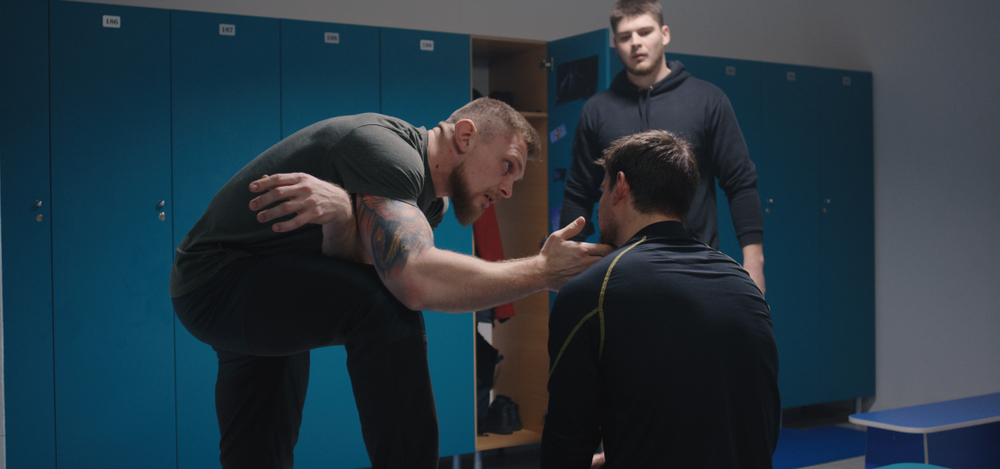Growing up without friends isn’t just a sad story—it leaves deep emotional marks that can follow you well into adulthood. When you spend your formative years isolated, overlooked, or excluded, it changes the way you see yourself, trust others, and navigate the world. These wounds don’t just fade with time—they shape the way you connect (or don’t) with people later on.
Here are 13 quiet, lingering wounds you might carry if you grew up lonely and friendless.
1. You Feel Like You’re Always On The Outside Looking In

Even in a crowded room, you feel like a visitor in someone else’s life. A recent study published in Scientific Reports highlights how social exclusion—being ignored or rejected—significantly undermines basic psychological needs such as autonomy, competence, and relatedness, which are crucial for feeling connected and included. This persistent exclusion can lead to a chronic sense of not belonging, reinforcing that outsider feeling, no matter how much you try to fit in.
This is the quiet legacy of growing up without a social circle. You learned early on that inclusion wasn’t guaranteed, and that belief is hard to unlearn.
2. You Struggle To Trust People’s Intentions

When you’ve been excluded or ignored, it’s easy to assume people aren’t being genuine. Compliments feel suspicious, kindness feels like a setup, and you’re always waiting for the other shoe to drop. You expect rejection, so you keep your guard up.
That wall you built protected you as a kid, but it can isolate you now. Letting people in feels risky, but it’s the only way to heal.
3. You Assume You’re Not Worth Being Chosen

Years of being left out make you internalize the idea that you’re not someone people want around. It’s not just about one event—it’s a pattern that quietly tells you, “You’re not enough.” That belief lingers, making you shrink in social situations.
Even when people try to include you now, you hesitate to trust them. Research by the American Psychological Association explains that social rejection triggers a cascade of emotional and cognitive effects, such as anxiety, sadness, and lowered self-esteem, which can lead to withdrawing from social situations and doubting whether others genuinely want you around.
4. You Apologize For Existing Sometimes

Loneliness teaches you to take up as little space as possible. You don’t want to inconvenience anyone, so you over-apologize, stay quiet, and act like you’re grateful for scraps of attention. It’s a survival tactic, but it can make you invisible.
You’re allowed to take up space. You don’t have to shrink to be acceptable. The people who truly care about you won’t need you to apologize for being here.
5. You Fear Rejection More Than Anything

According to a recent study published in The International Journal of Indian Psychology, fear of rejection significantly undermines young adults’ resilience and sense of belongingness. The research highlights that this fear negatively impacts individuals’ ability to recover from setbacks and to feel connected and accepted in social groups.
But avoiding rejection only feeds the fear. It’s not about never getting rejected—it’s about learning that rejection doesn’t define you.
6. You Sabotage Relationships Before They Get Too Close

When you’ve spent so long feeling unwanted, closeness can feel like a threat. You’re scared of being seen, known, and then left behind again. So you pull away, pick fights, or ghost people before they can ghost you.
As noted by BetterHelp, this fear of abandonment can lead people to unconsciously sabotage their relationships by pushing others away before they get too close, creating a self-fulfilling prophecy of isolation and loss. It feels safer to stay in control by ending things early, but this behavior ultimately undermines the very connections they desire.
7. You Struggle To Advocate For Yourself

Growing up without friends often means learning to stay quiet and not make waves. As explained by TalktoAngel, children who experience chronic loneliness often struggle with low self-esteem and a sense of worthlessness, which can make it difficult for them to advocate for themselves or speak up for their needs. This lack of early social support can lead to feeling that expressing your needs is foreign or even selfish.
But you do have a voice, and your needs do matter. Learning to advocate for yourself is part of healing that lonely kid inside.
8. You Downplay Your Successes

When no one’s there to cheer you on, you stop seeing your accomplishments as worthy of attention. You brush off compliments, deflect praise, and act like your wins don’t count. It’s a defense mechanism—you don’t want to seem like you think you’re “too good” because you learned early that standing out can get you left out.
But your achievements do matter. You don’t have to hide them to make others comfortable.
9. You Crave Connection But Don’t Know How To Find It

You long for deep, meaningful relationships—but building them feels like navigating a foreign country without a map. Small talk feels awkward, group dynamics feel overwhelming, and you don’t trust your instincts. You want connection, but you’re terrified of rejection.
This isn’t a flaw—it’s an emotional gap from years of isolation. The only way through it is to keep showing up, even when it’s messy.
10. You Overthink Every Social Interaction

Every conversation becomes a post-game analysis in your head. Did I say too much? Was that joke weird? Did they mean that compliment? The hyper-awareness is a holdover from years of trying (and failing) to fit in.
The truth is, most people aren’t scrutinizing you the way you scrutinize yourself. You deserve to relax into connection instead of dissecting every moment.
11. You Feel A Constant Low-Level Loneliness

Even when you’re surrounded by people, you feel separate—like you’re watching life happen instead of living it. It’s a quiet ache, not a dramatic sadness, but it’s always there. You don’t even know what *not* feeling lonely would look like.
That lingering loneliness is a residue from growing up isolated. Healing takes time, courage, and learning to let others in.
12. You Never Let Anyone See The Real You

When you’ve been lonely, you learn to perform—playing the role of the “easygoing one” or the “quiet one” to fit in. Being your full, messy, authentic self feels dangerous. You’re scared that if people knew the real you, they’d leave.
But authenticity is the only path to real connection. You deserve relationships that accept all of you, not just the version you think is acceptable.
13. You Carry A Deep, Unshakable Sadness

It’s not always visible, but it’s there—a quiet grief for the friendships you never had, the milestones you experienced alone, the comfort of being chosen that you never felt. It’s a sadness that lingers in your bones, even when life is “good.”
This sadness doesn’t make you broken—it makes you human. You can’t change the past, but you can choose to build the connections you deserve now.
Natasha is a seasoned lifestyle journalist and editor based in New York City. Originally from Sydney, during a stellar two-decade career, she has reported on the latest lifestyle news and trends for major media brands including Elle and Grazia.


